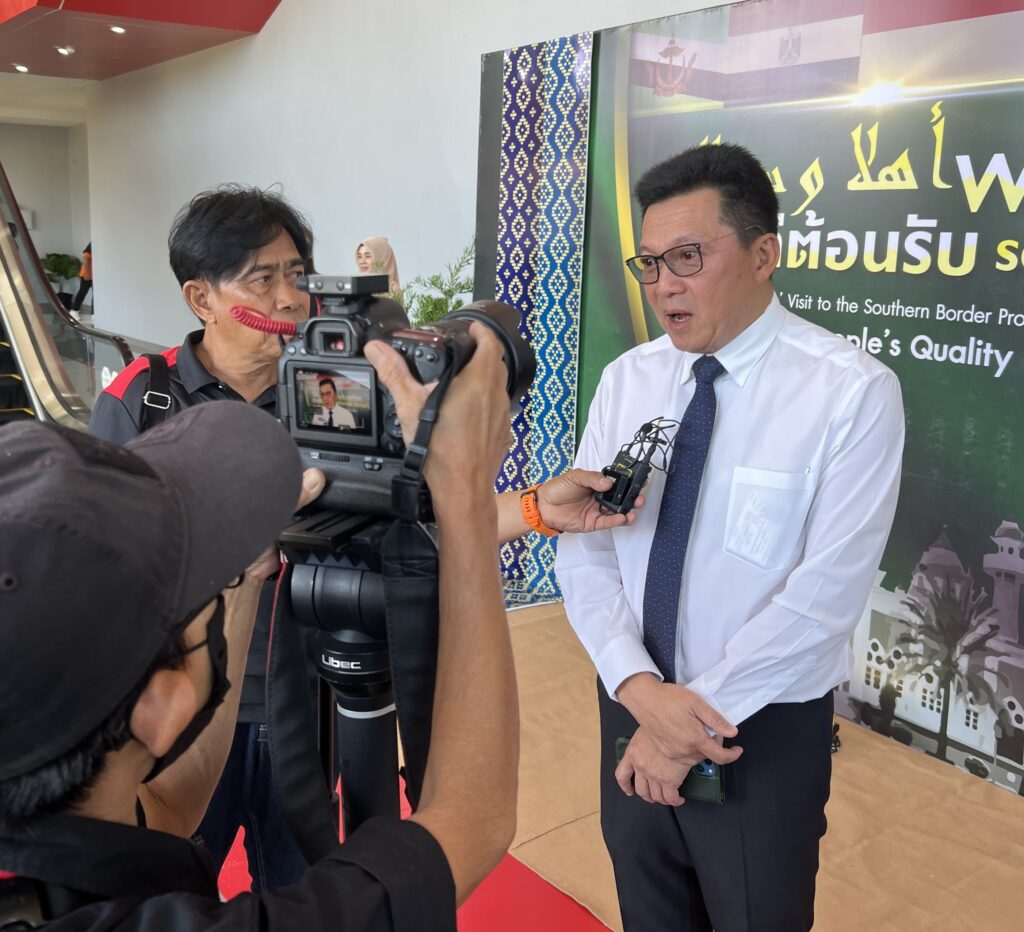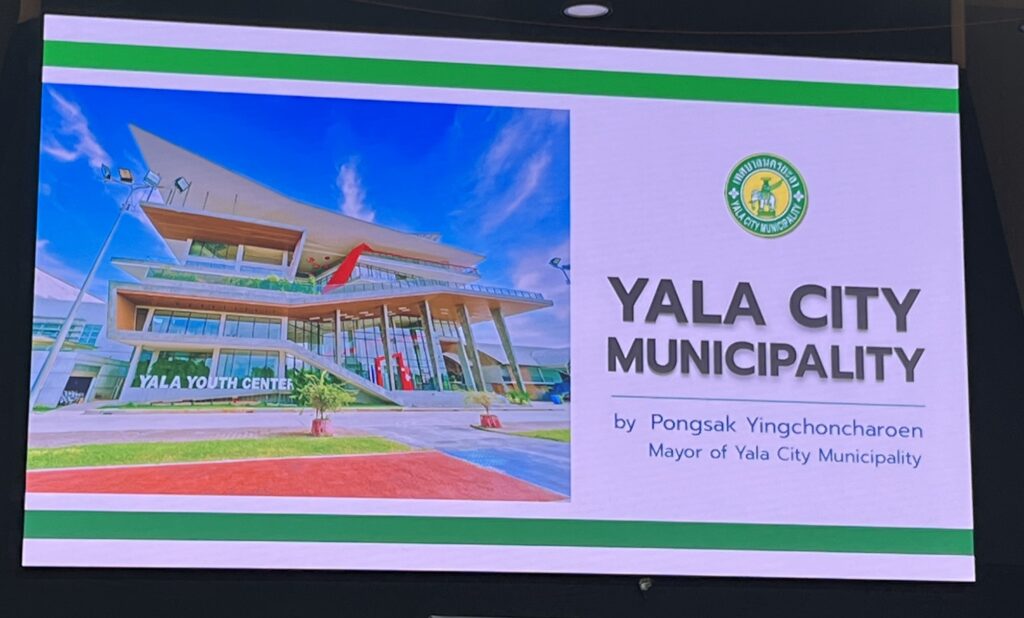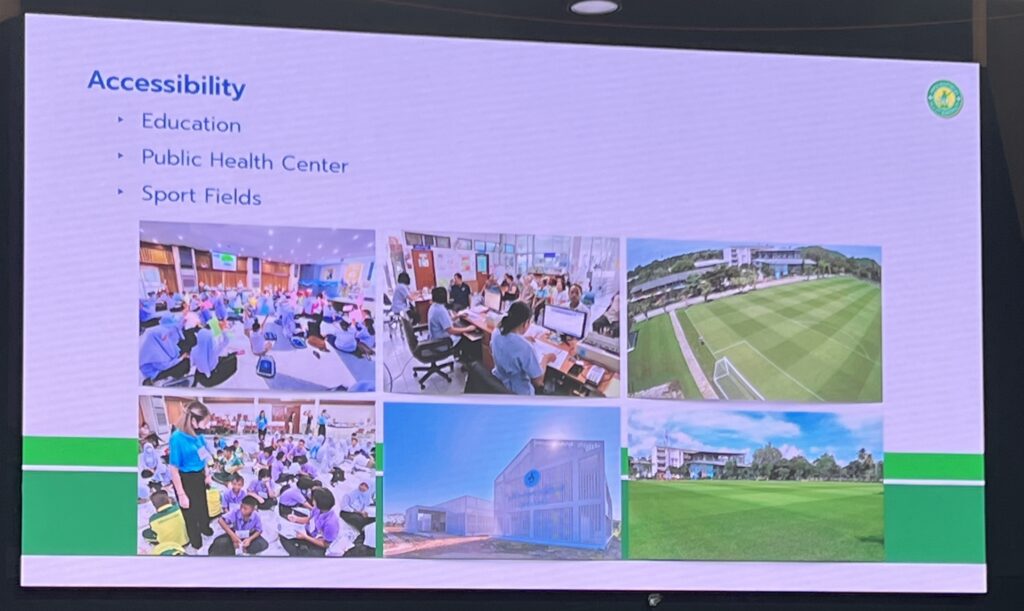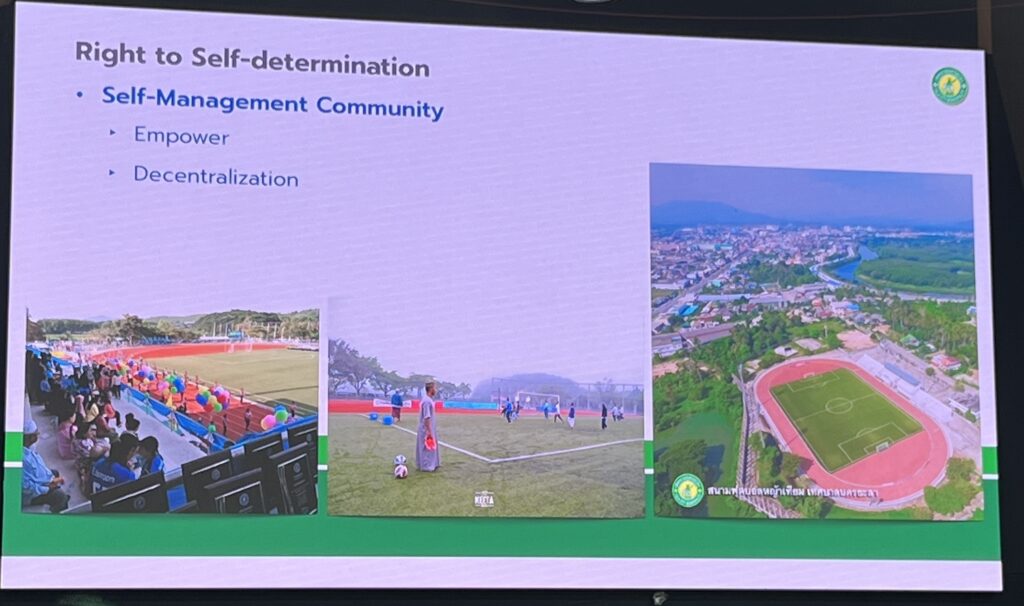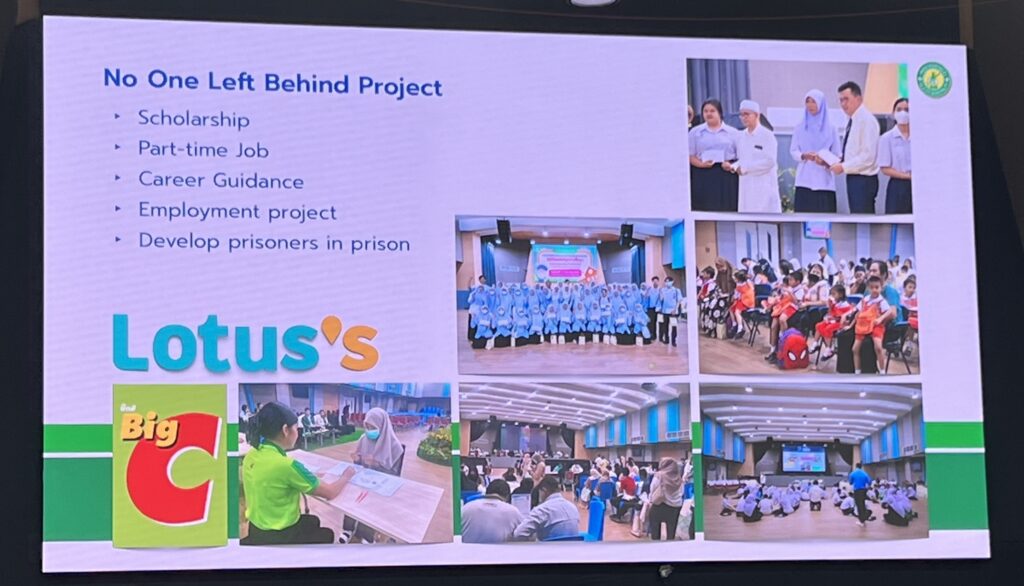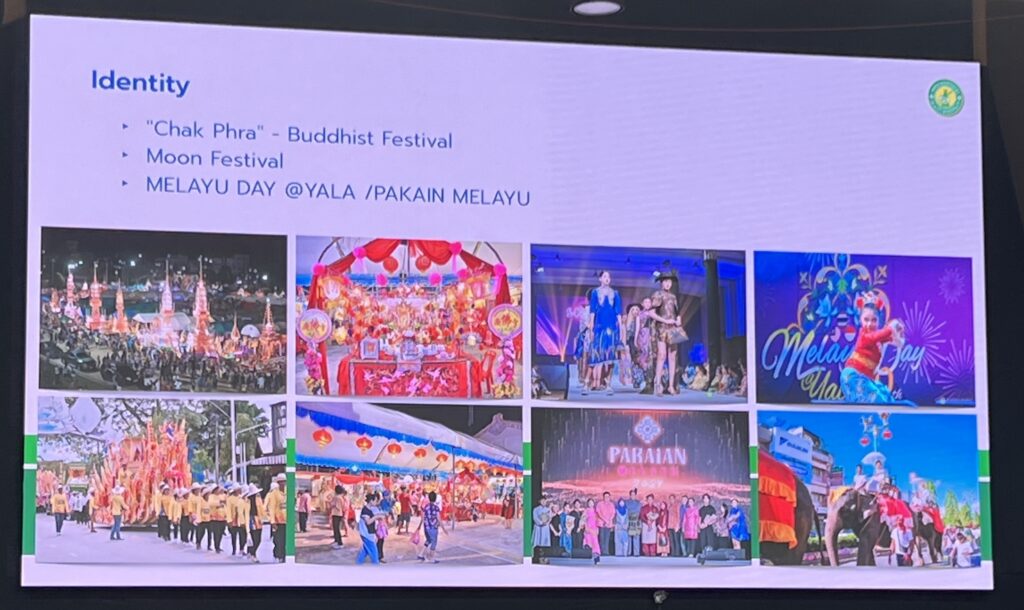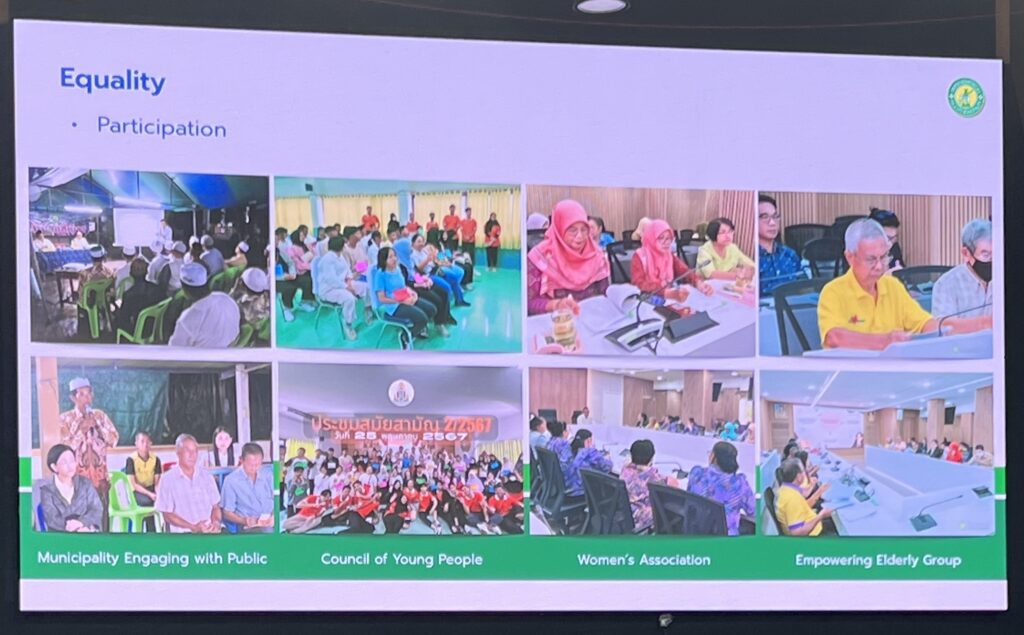19 Jun 2024
Thailand continues converting battlefields into trading fields, this time in the South
Pattani Province, South Thailand — In the 1980s, after the end of the Indochina wars of the 1970s, Thailand forged a policy of “converting battlefields into trading fields”, making the kingdom a hub of travel, trade and transportation for the Greater Mekong Subregion countries of Laos, Cambodia and Vietnam. As its far-sighted success is more than apparent in Northeast Thailand today, the policy is being adapted and replicated to dampen a decades-long socio-cultural-ethnic conflict in South Thailand on the Thai-Malaysian border.
On 11 – 13 June 2024, Thailand’s Ministry of Foreign Affairs and the Southern Border Provinces Administrative Centre (SBPAC) organised a visit by Ambassadors and diplomats to witness the changes taking place in the provinces of Yala, Pattani and Narathiwat. The SBPAC is the primary agency responsible for overseeing development in the region.
The group included four Thai Ambassadors, namely Mr. Darm Boontham, (Saudi Arabia), Mr. Prapan Disyatat, (Indonesia), Mr. Sorayut Chasombat (United Arab Emirates), and Mr. Apirat Sugondhabhirom, (Türkiye), accompanied by Mr. Sorut Sukthaworn, Ambassador attached to the Ministry, and Mr. Thanawat Sirikul, Deputy Director-General, Department of Information, MFA. Foreign diplomats from the Organisation of Islamic Countries members included the Ambassadors of Brunei Darussalam, Egypt and Iran, Chargés d’Affaires of the Embassies of Malaysia, Maldives and Nigeria, as well as Deputy Chiefs of Mission of Indonesia and the Consulate-General of Uzbekistan.
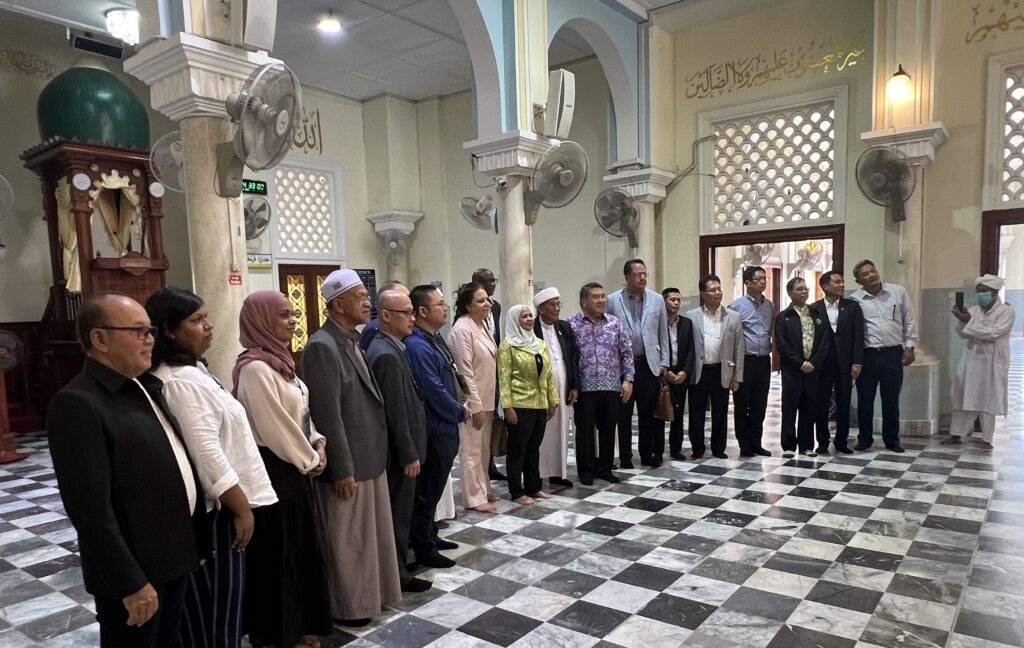
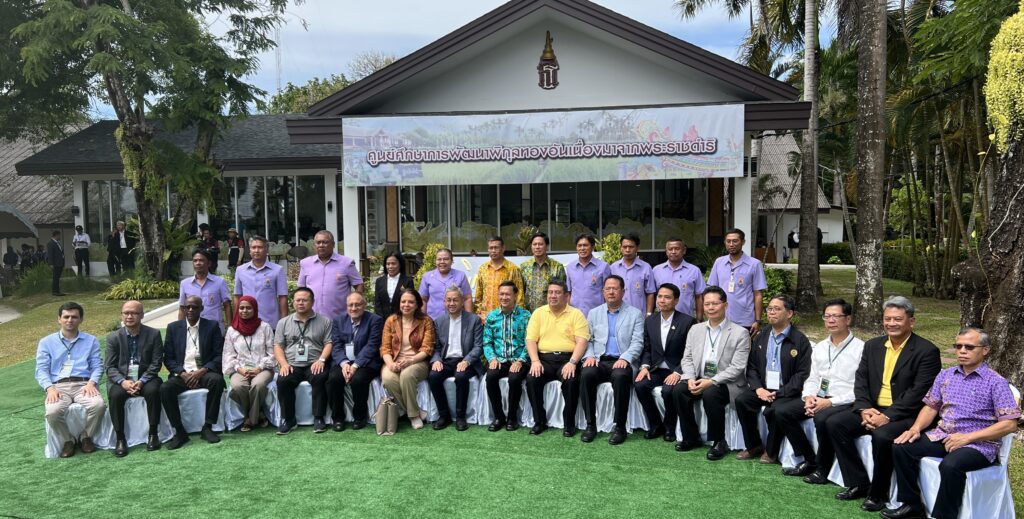
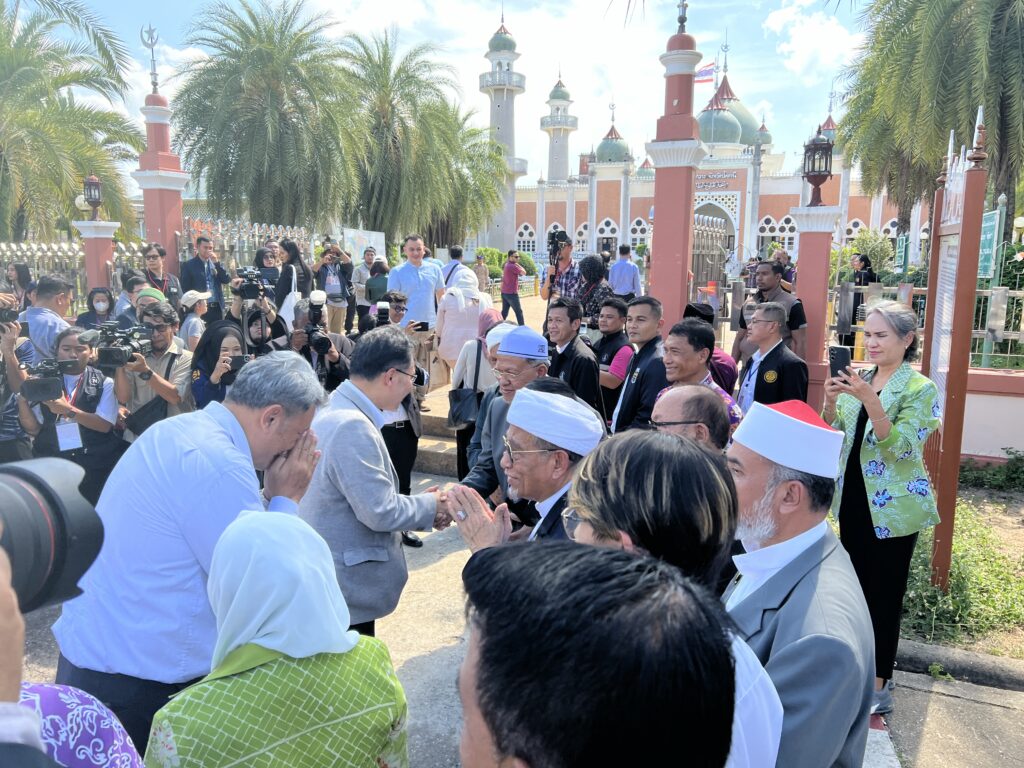
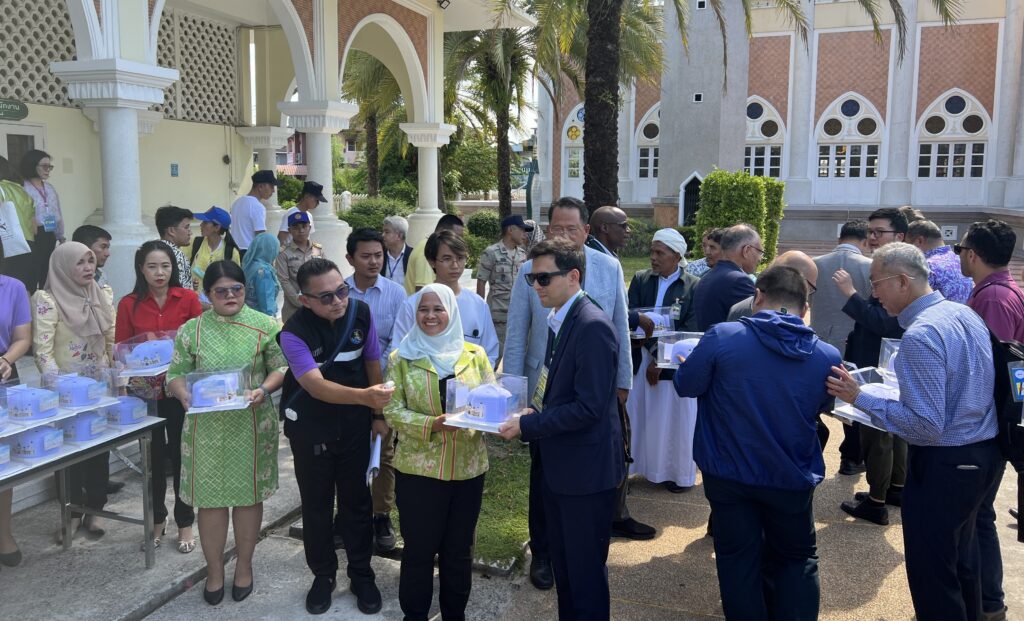
The envoys learnt about the current situation and government policies to promote a multi-cultural society in the Southern Border Provinces, and the economic potentials in terms of infrastructure, trade and investment, Halal-related business, and tourism. They visited various places that showcase the strength of the area, including (1) TK Park Yala and the Pikun Thong Royal Development Study Centre, (2) HRH Princess Sirivannavari Nariratana Rajakanya’s fabric design at the Yaring Batik Community Enterprise Group, 3) the second Golok River Bridge, 4) Education and Culture at the Pattani Central Mosque 5) the Kota Bharu Cultural Museum and 6) the Museum of Islamic Cultural Heritage and Al-Quran Learning Center in Narathiwat.
The following excerpts of some of the speeches and statements made by senior Thai officials provide a comprehensive context of the policy framework and specific actions to advance the agenda.
Police Lieutenant Colonel Wannapong Kotcharak, Secretary-General, SBPAC
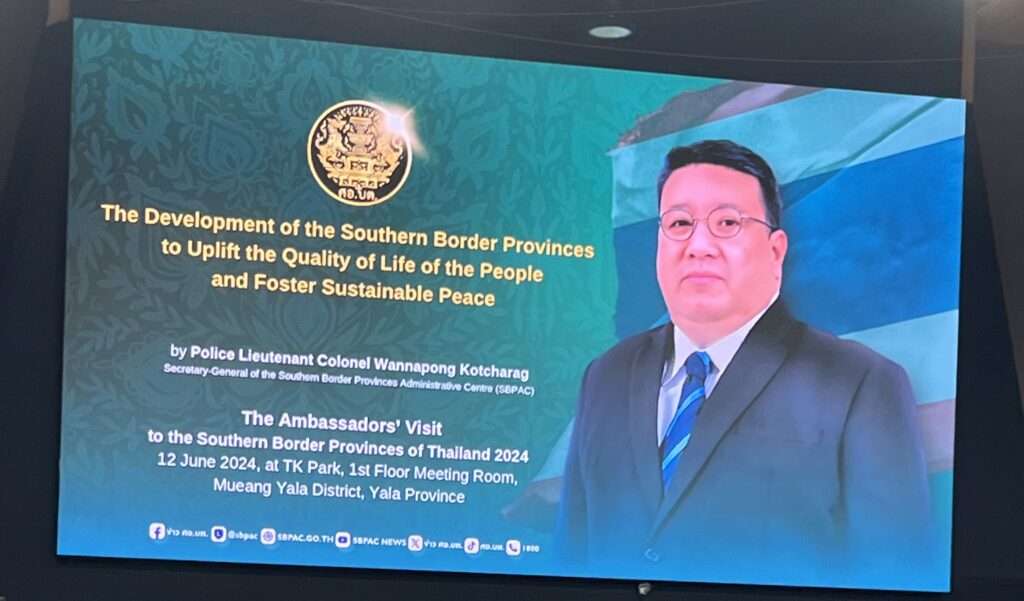
The southern border provinces are located in the central part of the Malay Peninsula and are a central point of Southeast Asia. The area is rich in natural resources both on land and at sea. Over 80% of the population practices Islam. The region boasts a diverse cultural landscape where people of various groups have coexisted peacefully for a long time. It has strengths and potential for development in many areas, such as agriculture, tourism, halal business and services, and the development of the Southern border provinces alongside the bordering Malaysian states into Twin Cities to enhance economic, social, and security cooperation. Additionally, it focuses on developing the Indonesia-Malaysia-Thailand Growth Triangle (IMT-GT) economic zone.
However, there are two significant issues in the area: First, the quality of life issue, especially in terms of the economy, education, and public health, which remain unequal compared to other regions and need urgent resolution. Second, the socio-psychological issues related to living situation according to identity and beliefs, as well as issues of fairness and equality for all groups, which remain conditions that require improvement. These two issues are significant causes leading to differing opinions, conflicts, and unrest by certain groups in the area, which the government is urgently addressing to bring peace and tranquility back to the region.
Regarding the approach to problem-solving and development in the southern border provinces, SBPAC, as the primary agency responsible for development, has adopted the Royal Strategies bestowed by His Majesty (the late) King Bhumibol Adulyadej the Great, which include the strategies of “Understand, Reach Out, Develop,” the “Philosophy of Sufficiency Economy,” and “Geo-Social Development”. We also adhere to the Royal Determination of His Majesty King Maha Vajiralongkorn Phra Vajiraklaochaoyuhua, which aims to “sustain, preserve, and build upon, and rule with righteousness for the benefit and happiness of the people,” and the Royal Initiative of “Volunteer Spirit: Doing Good Deeds with Our Hearts” as the main guiding principles in our operations.
Furthermore, we closely integrate our work with all sectors, including central agencies or functional agencies such as ministries, departments, area-based agencies covering the five provinces, working together in a supportive and unified manner, specific mission agencies, public organization networks, and international cooperation in various dimensions to resolve significant issues in the area through peaceful means.
Currently, our operations focus on three main areas: First, Improving the quality of life of the people, Second, Promoting peaceful coexistence based on cultural diversity, and Third, Supporting peaceful conflict resolution to achieve the key goal: “The people have a good quality of life and coexist peacefully based on sustainable cultural diversity.”
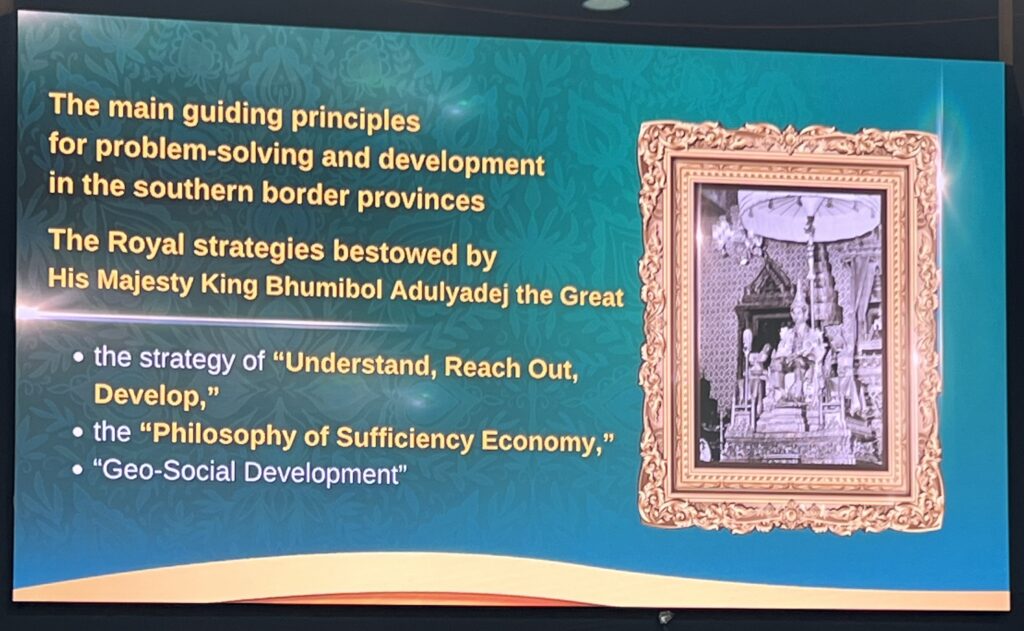
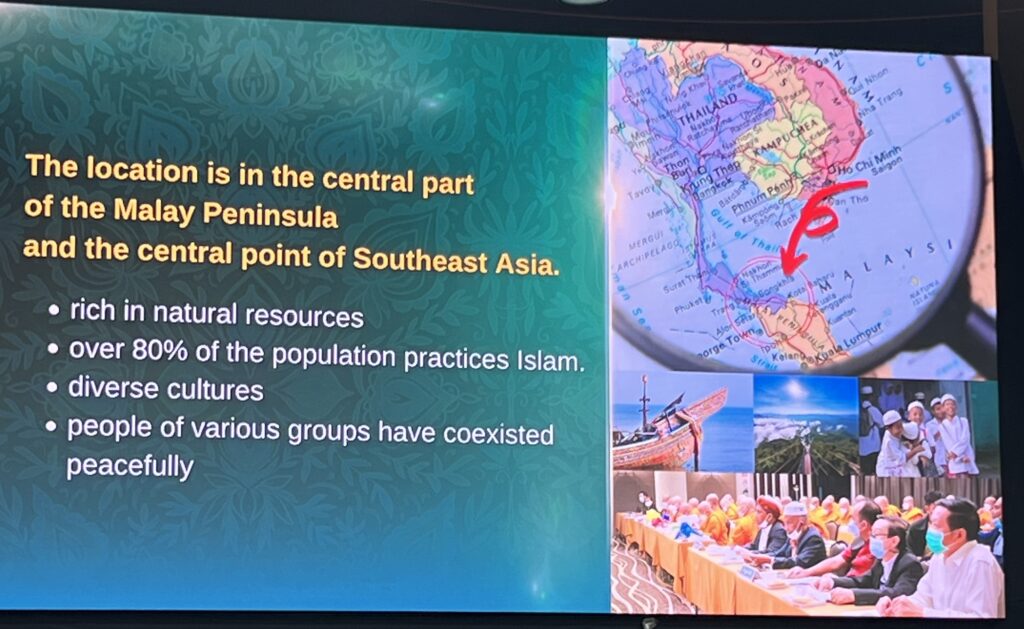
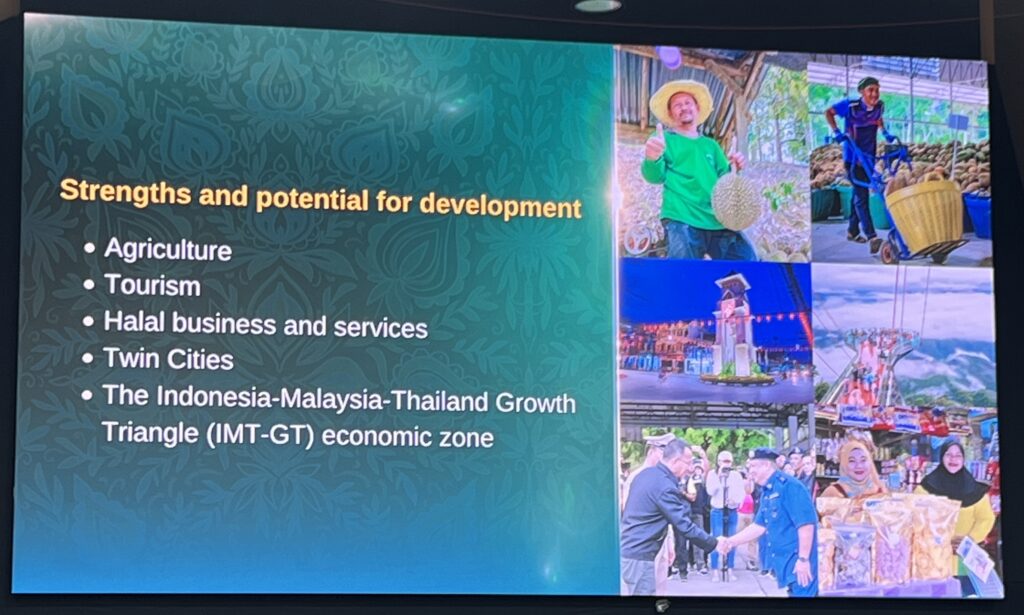
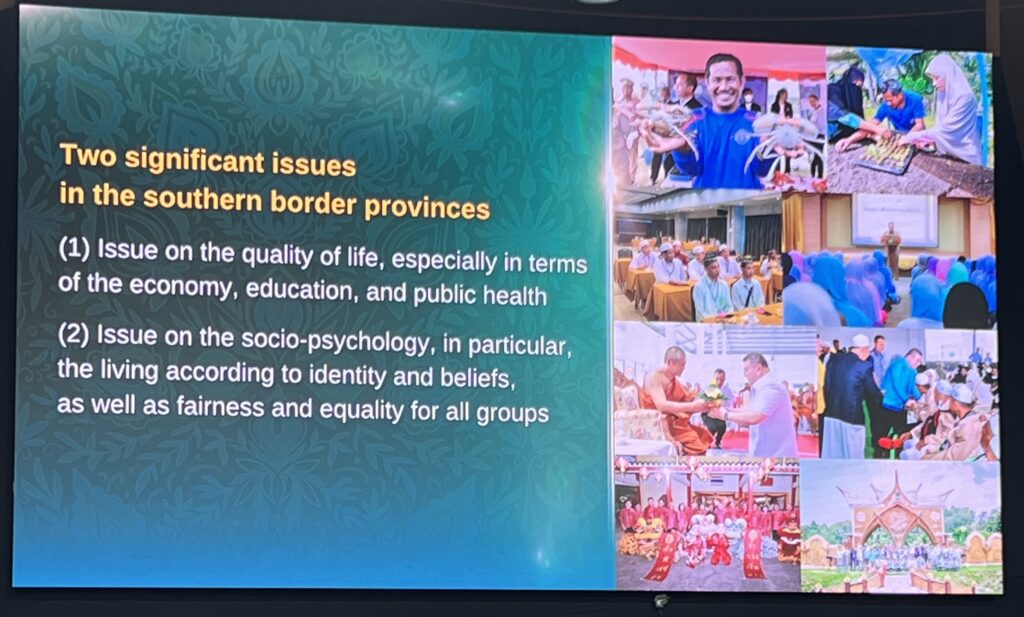
Anutin Charnvirakul, Deputy Prime Minister and Interior Minister
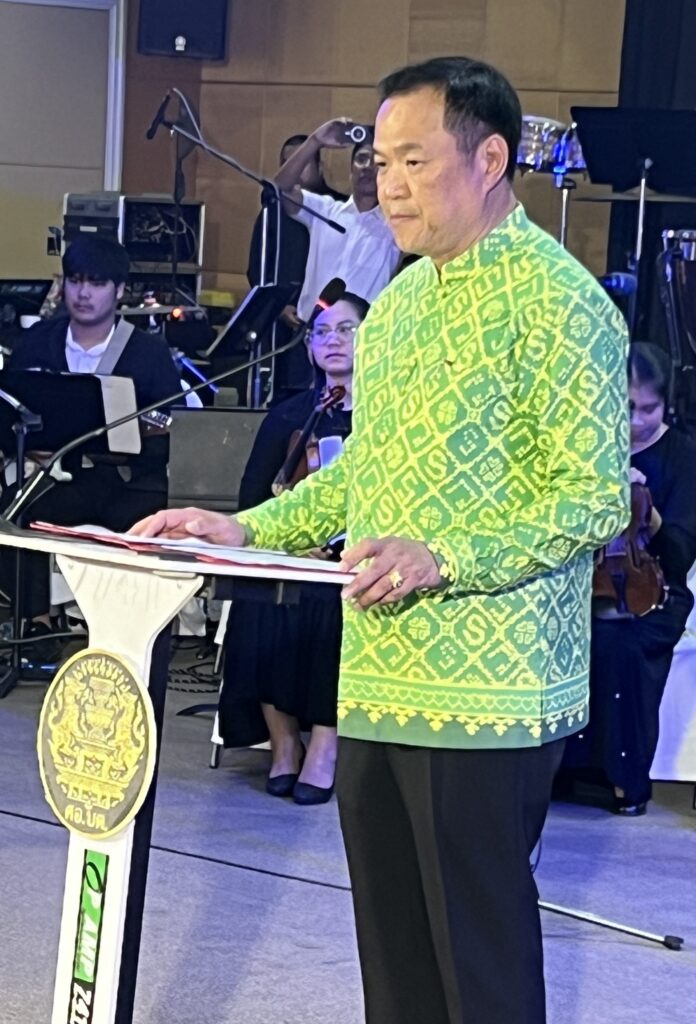
Our world now is facing more challenges than other times in the history. The adversity has spanned from economic, social, epidemic and environmental problems, to name a few. The sincere relationship and constructive cooperation have become crucial for our existence, as “Partnership” will lead to solutions and sustainable development.
Our Prime Minister has announced a policy to make Thailand the Regional Hub in areas such as Health services, Air transportation, Telecomunications, Education and Tourism. We focus on infrastructure development to enhance the country’s economic competitiveness and prosperity of the region. Thailand is especially committed to cooperating with our friends in Muslim countries in Food security, Energy, and Climate Change issues for the stability and quality of lives of our people.
With our common goals, I believe that the reception tonight and ongoing dialogues will reinforce our joint efforts to promote partnerships for economic growth, security and peace.
Mr. Darm Boontham, Thailand’s Ambassador to Saudi Arabia
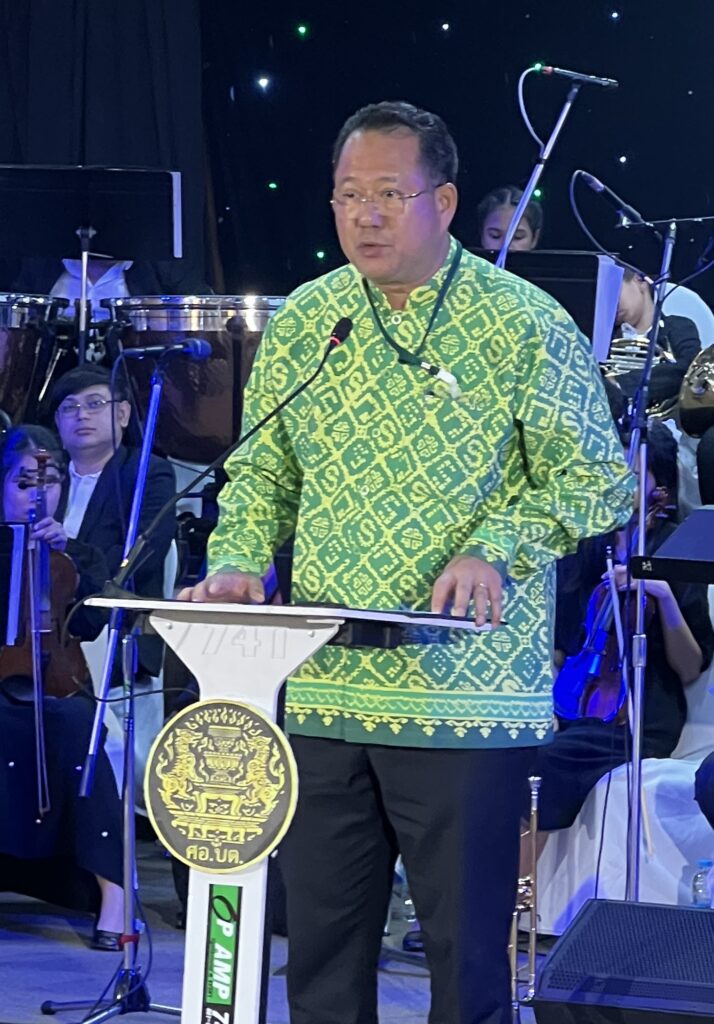
As members of the diplomatic corps to Thailand, I believe you already know from first-hand experience that Thailand has a lot to offer. Less may be known, however, about the potential of the Southern Border Provinces region or the SBPs since it may have been obscured by news coverage of random security situations. I hope that this can present the SBPs to you in a new light, highlighting the region’s unique attributes.
This region is unique with economic opportunities that lie in the strength of its rich history, cultural diversity and the people, the majority of which are Muslims. The SBPAC has meticulously curated this programme to showcase the significant strides in the region’s development and the Thai Government’s enduring commitment to “Uplifting the People’s Quality of Life,” the central theme of this visit.
For instance, today’s visit to the Yaring Batik Community Enterprise Group illustrates the crucial role women play in driving local economic growth. Over the next two days, you will explore various aspects of the SBPs, including infrastructure, trade and investment, Halal-related businesses, and tourism.
To truly “uplift the people’s quality of life”, the process must be led and owned by the locals, and the goal cannot be achieved only by the local administrations and the people in the area. It requires joint efforts of all stakeholders here and beyond. The Ministry of Foreign Affairs of Thailand has placed particular emphasis on our work to invite the international community to constructively cooperate with the SBPs for the region’s sustainable development.
We believe that it begins with education. In this spirit, Thai missions in Muslim countries have initiated several projects to empower overseas Thai students from the SBPs, enabling them to return home and contribute to local development.
As Ambassador of Thailand to Saudi Arabia, the Royal Thai Embassy in Riyadh has prioritized education and sustainable entrepreneurship to harness the potential of the SBPs. We have launched initiatives to support Thai students’ studies and vocational training which include interpretation training and Halal Science study programs aimed to advance Thailand’s Halal food production and marketing.
The Embassy has also provided opportunities for Thai students, through close collaboration with the Saudi sport associations, to express their talents and skills in sports such as Sepak-Takraow, Horseback Archery, and Muaythai.
Additionally, the Embassy has actively supported Thai entrepreneurs, including those from the SBPs, in showcasing their products and services at prominent exhibitions in Saudi Arabia, such as the 40th Edition of Saudi Agriculture 2023, the Thai Trade Exhibition 2023, the Thailand Mega Fair 2023, and the Saudi Food Show 2024. The Embassy also encouraged Thai entrepreneurs to accept Thai students based in Saudi Arabia as trainees.
During this visit, as you uncover the unique opportunities and strengths of the SBPs, we eagerly anticipate learning from your countries’ best practices and experiences. Your insights will inspire new ideas for cooperation between our nations, fostering more opportunities and a brighter future for the SBPs, as well as enhancing business, trade, investment, education, and tourism for all our peoples.
Mrs. Patimoh Sadiyamu, Governor of Pattani Province, and Thailand’s first female Thai-Muslim provincial governor
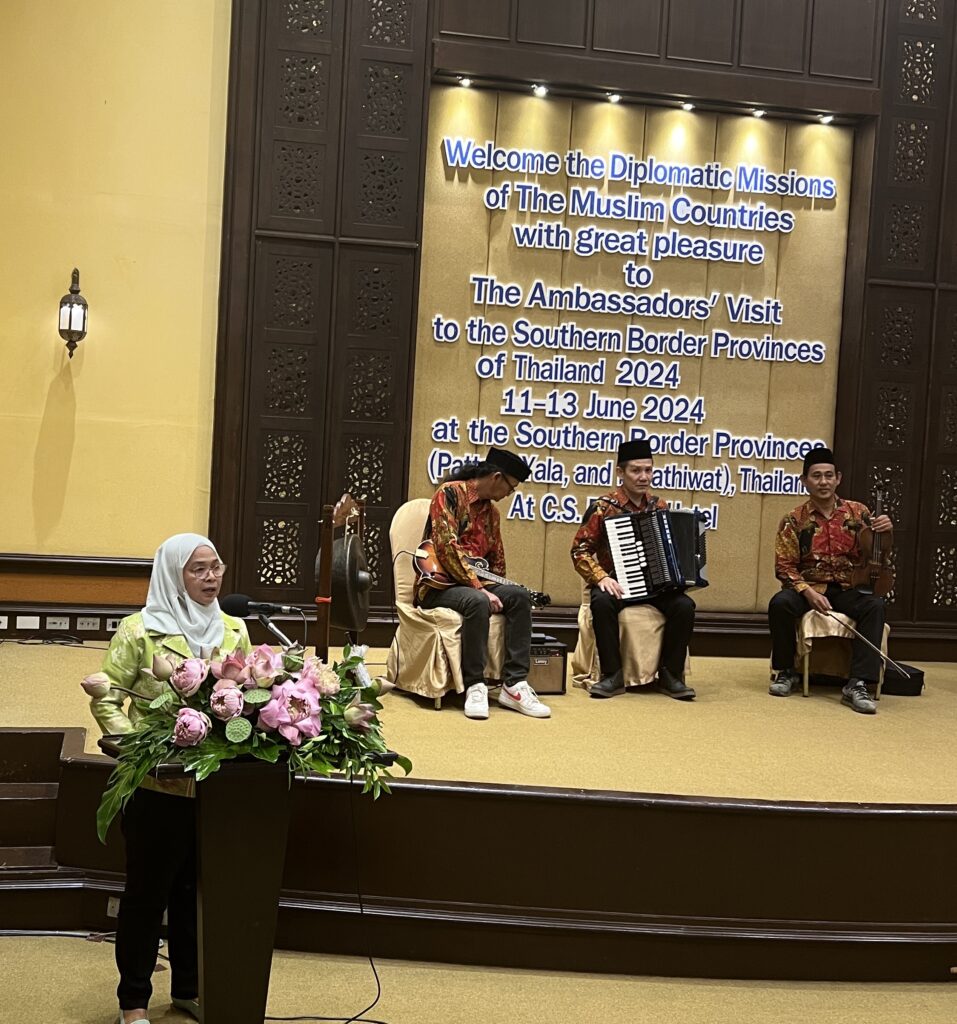
Today is the first day of the visit at Pattani Province, where the provincial motto is “City of Three Cultures. Centre of Halal Food. Truly Religious People. Abundant Beautiful Natural Places. Pattani, the Land of Peace in the South”, and with the development goal of “being the source of quality agricultural and Halal products while maintaining life security”. The aim is to create a greater impression on Pattani Province and having people return to the province again.
Pattani has abundant natural resources, especially sea and mangrove forests, and has magnificent cultural traditions. Majority of the population practices Islam; however, they can live with people of other religions peacefully, under one institution ideology, “the Nation, the Religion, the Monarchy”. There are different religious places of worship here in Pattani, such as Pattani Central Mosque, Rat Burana Temple (or Wat Chang Hai), and Chinese Lim Ko Niao Shrine, which become widely-known tourist attractions for both Thai and foreigners. Additionally, Pattani has diverse food culture that has generated income to people residing in the area.
I believe that Your Excellencies’ visit to the southern border provinces this time will be an open chance for us to work together, including the development on infrastructure, that would lead to other development areas, particularly in economy, trade and logistics, agro-industry, fisheries, international investment, as well as the development of product quality and entrepreneurs of dried squid products, Budu sauce or the southern-style fish sauce, fish crackers, velvet tamarind paste, brassware, and batik cloths.
Education is another area of cooperation which is of particular importance as a fundamental tool for human resources development. The cooperation on promoting and supporting Thai southern border provinces’ students to study abroad and to have the opportunity to improve their foreign languages skills will bring them a greater career opportunity in the future, including maintaining good culture and traditions to last forever.
Acting Sub Lt. Trakul Thotham, Governor of Narathiwat Province
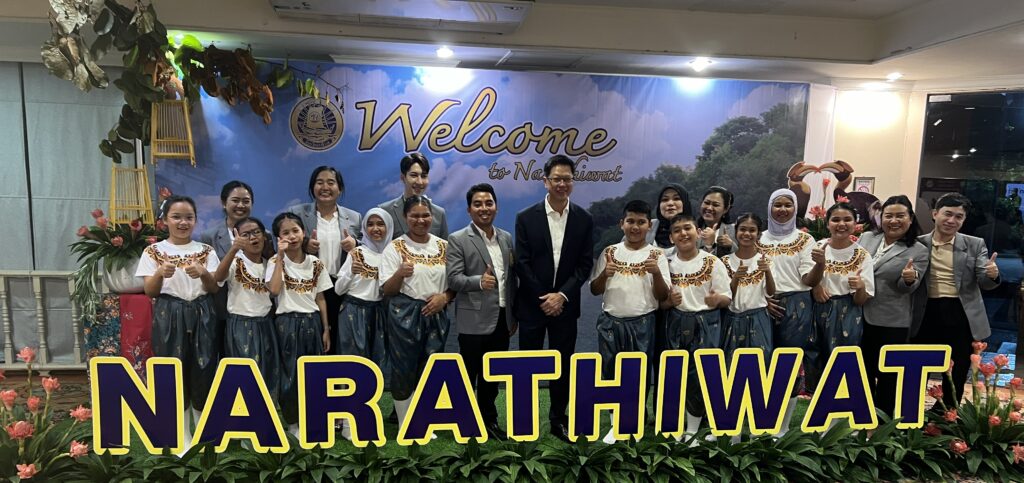
Narathiwat is the province that has a rich in natural resources. There are beautiful Narathat Beach and other tourist attractions that are well-known to travelers internationally. This province also contains exquisite cultures and traditions, with people peacefully coexistence in the multicultural context under an institution ideology of “the Nation, the Religion, the Monarchy”.
People of all religions are provided with religions places of worship thoroughly. The educational institutions in Narathiwat province, from basic education to higher education level, are widely recognized of the high quality, as well as the diversity of food. These are all reflected in the provincial motto, “Thaksin Ratchaniwet Palace. People love religion. Beautiful Narathat beach. Fascinated Pajo waterfall. The large source of gold. Sweet longkong”, and the vision to achieve the provincial development goal is “Economic stability, prosperous trade, livable Narathiwat and leading to sustainable peace”.
I believe that, this visit to the southern border provinces will be an opportunity for our cooperation, both on the infrastructure development, that would lead to other development areas, such as economy, trade and investment, and international logistics, as well as the cooperation in the field of education to develop human resources. The opportunity for the southern border provinces’ students to study abroad in a higher level and foreign language study can open many doors for employment in a variety of occupations. This includes good culture and traditions to be maintained to last forever.
These are in line with the Narathiwat Province’s Development Plan to strengthen the potential on economy, agriculture, trade and investment, services, tourism, and industry, to enhance the quality of life of the people equally under the multicultural society, to create stability and build trust and confidence among people in the area.
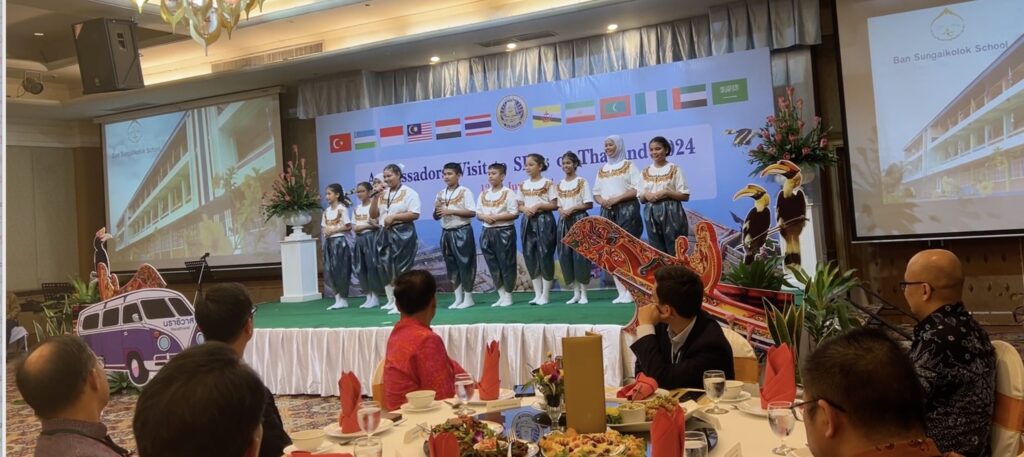
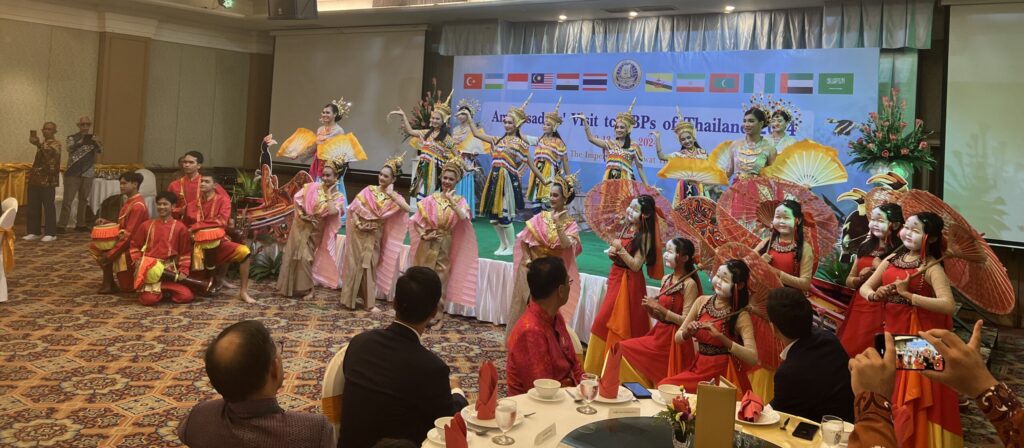
Yala City Mayor Pongsak Yingchoncharoen
He stressed how the City Government facilitates community get-togethers, with the local people doing the organisation work while the City provides the venue, funding and promotional support. One large scale such gathering is the People’s Council which has attracted up 2,500 people. Local community leaders hold monthly meetings along with more focussed sessions to consider issues related directly to women, children, youth and the elderly.
Access to public services is ranked highly. Yala Municipality operates six schools and five child care centers in different parts of the city. More public health service centers are being opened, along with expanded recreational space. Budgets are fairly distributed and the municipality promotes the culture and identity of each race in the area.
To alleviate the severe economic impact of the Covid pandemic, the Municipality has initiated several projects to create jobs and scholarship opportunities, especially for the poorest families. Students are being given part-time jobs. Others are being provided opportunities for upskilling and reskilling. Big-business enterprises such as Big C or Lotus are being encouraged to create special jobs for the poor.
Social work is also being done to rehabilitate prisoners and prepare them to lead productive lives after their release.
